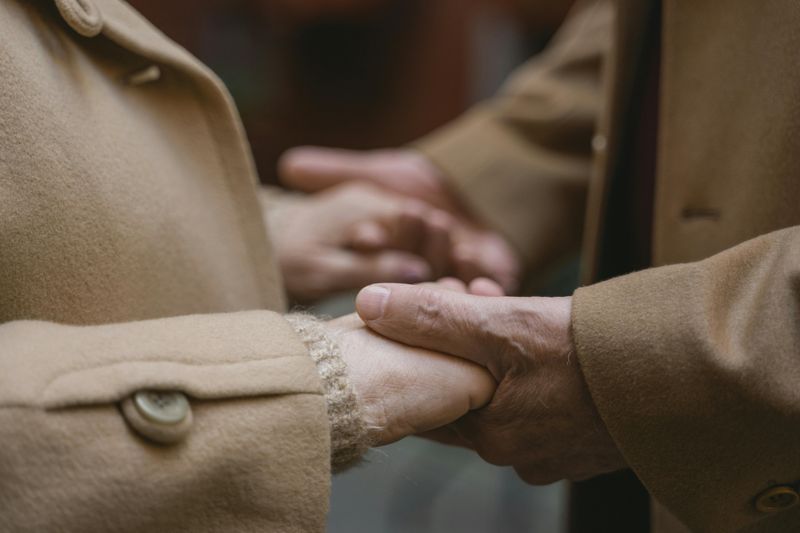Many people today find themselves feeling grateful for behaviors that should actually be standard in any healthy relationship. Social media and dating culture have somehow made basic respect and decency seem like rare gifts worth celebrating. Unfortunately, this has led many to accept far less than they deserve, mistaking common courtesy for exceptional treatment. Understanding the difference between genuine effort and basic human decency can transform how you view your relationships and what you’re willing to accept.
1. Respecting Your Boundaries

When someone actually listens to your “no” without arguing or pushing back, that shouldn’t feel like a miracle. Respecting personal limits, honoring privacy, and accepting your decisions without drama represents basic human decency, not exceptional kindness.
Healthy individuals understand that boundaries exist for good reasons. They don’t take your limits personally or try to negotiate their way around them.
If you find yourself amazed when someone respects your space or accepts your decisions gracefully, it might be time to examine what you’ve been accepting as normal. Boundary respect should never feel surprising or special—it’s the foundation of every healthy relationship, whether romantic, platonic, or professional.
2. Basic Communication Skills

Checking in regularly, listening without interrupting, and being honest about feelings aren’t relationship superpowers—they’re communication basics that every mature person should possess. Yet many people feel incredibly lucky when someone actually pays attention during conversations.
Active listening means putting down phones, making eye contact, and responding thoughtfully to what you’re saying. Emotional honesty involves sharing feelings openly rather than expecting others to guess what’s wrong.
If basic communication feels rare in your relationships, you’re not asking for too much—you’re simply surrounded by people who haven’t learned fundamental social skills. Don’t mistake someone’s ability to have a real conversation for exceptional effort when it’s actually standard adult behavior.
3. Showing Up Consistently

Reliability shouldn’t feel like winning the lottery. When someone keeps their promises, shows up on time, and follows through on commitments, they’re demonstrating basic integrity, not going above and beyond.
Consistency means being the same trustworthy person whether it’s convenient or not. It involves keeping small promises just as seriously as big ones and maintaining steady behavior over time.
Many people have become so accustomed to flaky, unreliable behavior that simple dependability feels extraordinary. However, showing up consistently is the bare minimum requirement for building trust and stability. If someone’s reliability surprises you, it says more about your past experiences than their exceptional character. Consistency should be expected, not celebrated as a rare gift.
4. Basic Kindness and Courtesy

Politeness, consideration, and kind words represent standard human behavior, not extraordinary generosity. When someone uses please and thank you, speaks respectfully, or considers your feelings, they’re meeting basic social expectations.
Common courtesy includes things like not interrupting, saying excuse me, and treating service workers with respect. It means thinking about how your actions affect others and adjusting accordingly.
If you feel overwhelmed with gratitude when someone treats you with basic kindness, you might need to raise your standards. Decent treatment isn’t a luxury item—it’s what every person deserves in their daily interactions. Don’t confuse someone’s basic manners with exceptional character or special treatment. Kindness should be the starting point, not the finish line.
5. Loyalty and Faithfulness

Staying faithful and loyal isn’t heroic—it’s the absolute minimum requirement for any committed relationship. Not cheating, not betraying trust, and not entertaining romantic options outside your relationship shouldn’t earn someone a medal.
Faithfulness means more than just physical loyalty. It includes emotional fidelity, being honest about interactions with others, and prioritizing your relationship’s wellbeing over temporary temptations.
The fact that infidelity has become so common doesn’t make loyalty special treatment. It makes it more precious, but it’s still a basic expectation. If you find yourself feeling grateful that your partner isn’t cheating or betraying your trust, remember that you’re not asking for extra—you’re asking for the foundation of commitment. Faithfulness is standard, not special.
6. Mutual Support and Encouragement

Supporting each other’s goals, offering comfort during difficult times, and showing empathy shouldn’t feel like rare gifts. These behaviors represent the natural flow of caring relationships, not exceptional generosity.
Real support means celebrating successes without jealousy and providing comfort during failures without judgment. It involves actively encouraging growth and being present during both good times and bad.
Empathy and encouragement should flow naturally between people who care about each other. If someone’s support feels overwhelming or surprising, it might indicate you’ve been accepting relationships lacking basic emotional reciprocity. Don’t mistake normal caring behavior for extraordinary effort. Mutual support isn’t special treatment—it’s what healthy relationships look like when both people are emotionally mature and genuinely invested.
7. Taking Accountability for Mistakes

Owning mistakes, apologizing sincerely, and making genuine efforts to improve represent basic maturity, not exceptional character. Adults should naturally take responsibility for their actions without making excuses or deflecting blame.
Real accountability involves acknowledging specific wrongdoings, understanding their impact, and taking concrete steps to prevent repetition. It means apologizing without adding “but” or making yourself the victim.
If someone’s ability to admit mistakes feels remarkable, you’ve probably dealt with too many people who lack basic emotional maturity. Taking responsibility for one’s actions is fundamental adult behavior, not special treatment. Don’t be so grateful for someone’s accountability that you forget it’s actually the minimum standard for respectful relationships. Maturity should be expected, not celebrated as extraordinary.

Comments
Loading…